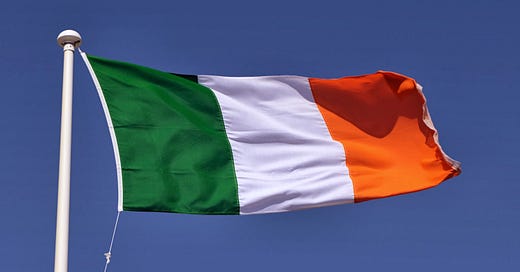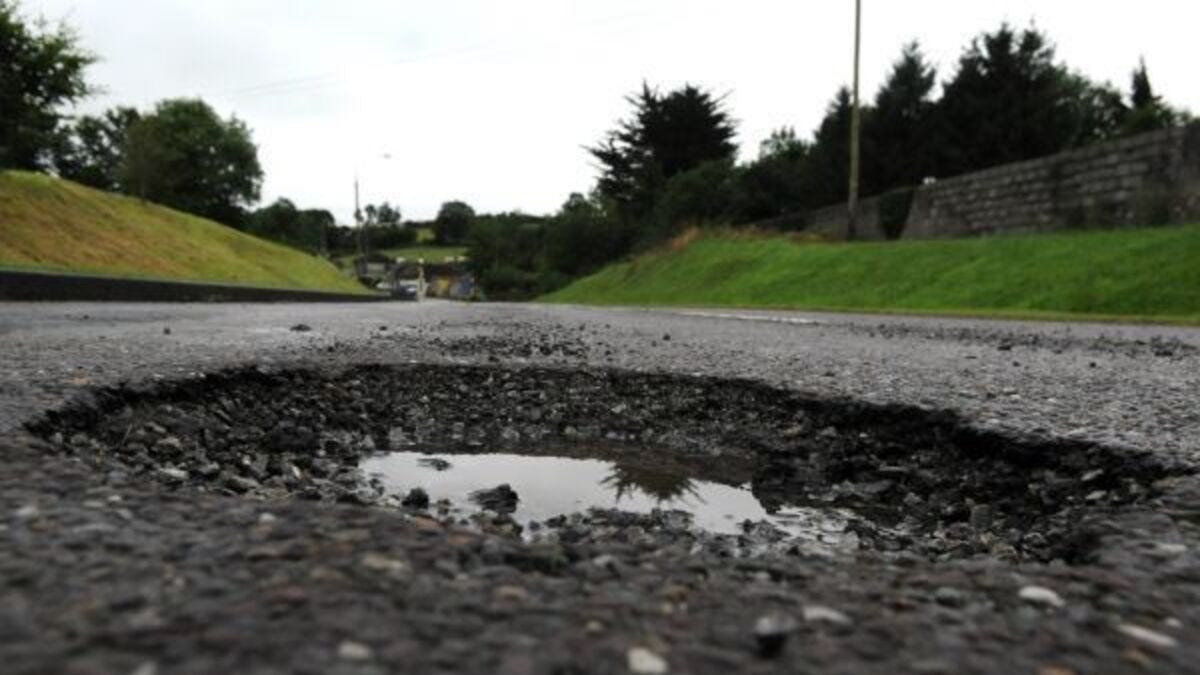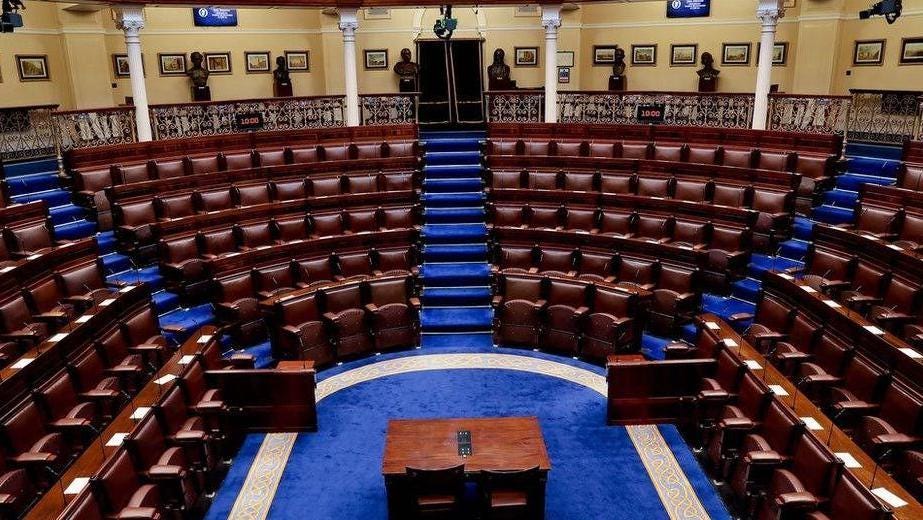For me personally, the history, identity and culture of Ireland has always been close to my heart. Having been born in this land, I would spend much of my childhood questioning elements of Irish society. Things never truly sat right with me but I could not place why. Something always felt off about the world around me. It would take many years of study and even leaving the country of my youth to finally understand and identify the issues facing this nation. As I now live in self-exile from my homeland due to many social, economic and political issues in Ireland, it has allowed me to reflect on the nation I grew up in. Travel and experience has helped shape my worldview to a point where I can better articulate the issues in Irish society and potentially, how to address them.
Life in Ireland
The Ireland I know is a depressing place. There was always a palpable feeling of degradation whilst I lived there. People had very little regard for the condition the country had fallen into after the ‘Celtic Tiger’ period and there was no appetite to fix them. What was even worse, was that many would not acknowledge there were problems to begin with. The passive dismissal of the dismal decay was in every aspect of society. The Irish people felt as if they were simply going about the motions of life and not truly living.
This decay was seen in both physical and psychological. For this Part I, I will speak about the physical. In the country around me, for so many years, infrastructure was atrocious. Outside of Dublin, public transport was nearly non-existent with only a few buses to get from one town to the next. Train lines were limited and very few trains ever ran. I remember it being a surprise when we would take a train to a destination, a stunning experience to see one run, though never on time. Even the conditions of public transport was bad. The few trains and rail lines were poorly maintained, with no interest in expanding them. The buses were always late and limited in number. Information on bus routes was also no existent. If a bus did not show up at your local town on the day and time listed on a single sign at the bus stop, then you just have to either wait for the next one or give up and go home.
The roads themselves were always poorly maintained. Potholes littered the roads in rural areas and even in towns. There was no urgency to fix these problems even though they had detrimental effects on people’s safety and their vehicles condition and when they were eventually filled in, it was done poorly and with little regard for the longevity of the roads in question. In country areas, farmers would drive their slurry trucks from one field to the next, leaving behind layers of mud and excrement for the next driver or pedestrian to stumble upon. No attempt to clean up after themselves, acting with a sense of complete apathy for the wellbeing of others and their list of transgressions is not limited to these but I will speak more about Irish agriculture in a later part. A teaser for that would be a possible link between Irish farming methods and the high rates of cancer and asthma in rural areas of the country.
Housing is also atrocious, either buildings, which were poorly made during the 80s or 90s, are falling apart or new buildings are somehow of even lower quality then what came before. This causes heat retention in homes to be a nightmare which leads to higher energy bills simply to keep one’s home liveable. This has the added effect of illness being spread. Since people cannot afford to heat their homes and they are built with inferior materials and methods, dampness in Irish homes is truly a killer with thousands every year being taken by onset tuberculosis and bronchitis.
Availability of homes for rent, not even to buy, in Ireland number in the hundreds, even though tens of thousands of citizens are in need of homes. This crisis has been ongoing for decades now and it is destroying a generation of young people who either cannot get accomodation to be closer to their desired area of learning/employment or cannot start families due to having no place to call their own. Having personally seen this farce play out with many friends and family back home, I can say for certain it is an issue that should be taken seriously but is rarely spoken about.
These are but a few general issues of living in Ireland from personal experience. While I could continue to rant on these problems, I will save those for a later part.
One Way Education
The motion of life in Ireland was the same as it was everywhere else in the West. You go to school, university, then get a job and have a family. Finally ending the whole affair with your death. What horrified me so much as an adolescent was that so few people were questioning this. Education felt so stagnant and clinical. No regard for learning, only passing exams. The Junior Certificate and Leaving Certificate, equivalents to GCSEs and A levels in the UK, were near worshipped by the ‘school culture’ and was the sole focus of a teenagers life. The level of stress and pressure I saw put on so many of my peers to pass these exams was stunning. The push to send their children to university drove parents into a frenzy of micro management of their children’s studies. How detailed your study plan was became almost a fashion. How quickly you could complete exam prep tasks was paramount to your success. In the eyes of my generation, if we failed these exams, our lives were over.
This absolute demand of excellence was exhausting and the worst part was that most of my peers never questioned it. It was just accepted. ‘This is what I must do and this is how I must do it’. In a class of 40 students that I was in, 38 of them went to university, one became a carpenter and one joined the army. When each student was asked for their motivation for going to university, few answered in the positive. Most answered with ‘what else am I supposed to do?’ or ‘Its what my parents want’. Only one or two were passionate for the subject they wanted to learn at third level education.
The one who became a carpenter wanted to do it because his father was one. At the time, I was unsure how to feel about it. I did not understand back then how vital such trades were for a functional society. Now I give full credit to him for doing something different. This lack of promotion in schools of craftsmen such as carpenters, plumbers, electricians and builders now haunts Ireland in the current day as while these skills are in incredible demand, there is virtually no supply. An issue I will return to another time.
The final student of the 40 kids in the class, the one who joined the army, was me. During my younger years, I grew up with a fascination for history and the military. I played soldier in the fields and forests I used to explore, I watched Band of Brothers and Saturday mornings were spent on the history channel learning about WW2. However, actually joining the military did not come into my head until my final year of Secondary school. In Ireland, you receive a book near the end of your time in school that lists all the university courses in the country, the requirements for them, how long and how costly the course is, etc. I remember reading through this book, trying to find a course I would like to do. There was dozens of obscure degrees that were on offer. ‘Computer Sciences’, ‘Business Studies’, ‘Radio, TV and New Media’, ‘International Development and Food Policy’, ‘Occupational Health and Safety Management’ and the list goes on and on. In reality, these degrees did not have a clear career path and I felt they existed just to create the illusion of choice for people of my generation. Once you leave university, it matters very little what degree you have, so long as you have a degree.
So when I came to deciding my future, I decided to toss the book away and go do something that I felt would be a better use of my time. While I still applied myself to my exams to the best of my ability, more so out of outward perceptions than actual interest, I knew regardless of what results I got, it would have no bearing on my future. To me this was liberating. I had never enjoyed the stifling environment of school where critical thought was discouraged. Passing these exams was all that mattered to these people.
Based upon the information I have gathered since leaving school, out of those 40 students in my class, very few finished university. The ones that did were those that showed great interest in a certain topic. Those that didn’t were the ones who did it because it was expected of them. So in the end, what was the use of sending 38 students to university to better their lives when around 30 of them would later drop out? This is not an isolated event either. Students either leave university early in Ireland or they find themselves burnt out and depressed from completing a three to four year course in a topic they had no interest in.
I ask then, does any of this make sense? Why do we have only one perceived path through life that breaks so many people? Ireland used to have strong institutions to support people into becoming skilled craftsmen but that has not existed for most of my life and the only reason that one kid became a carpenter was because he was exposed to it through his family’s business. In my school, there was no woodcraft or metalworking. No home economics or future planning. There were only exams. I do wonder how many people out there actually feel fulfilled from the Irish education system? I personally have yet to meet someone who had anything good to say about it.
Political Stagnation
Then there is the political landscape. To simplify Irish politics, all major parties in Ireland come from the same party, Sinn Fein. Fianna Fail and Fianna Gael have all been breakaway parties from the time of the Irish War of Independence and Civil War. This means, transported 100 years into the present day, that the differences in these groups' politics is practically nil. In the last 10 years alone, every major party in Ireland has adopted the exact same left wing Progressive points. Even Sinn Fein, the once accredited nationalist party who were the backers of the IRA during the Troubles, have completely betrayed their nationalistic values. Right now in Irish politics, there is no diversity of thought. Fianna Fail, Fianna Gael, Sinn Fein, The Greens, Labour, Social Democrats and many others just have the same policies. Politics in Ireland has completely ossified to the point where turnout in elections is less than 50%. The level of disenfranchisement in Ireland is abysmal and shows how broken the nation is. The policies undertaken by these Progressive parties for the last 20 years have been directly against the interest and wishes of the majority of the Irish people to the point where many have simply stopped engaging with the political process.
During my youth, there was still a semblance of difference in the Irish political scene. Fianna Gael and Fianna Fail maintained a slightly left and right centrist identity and Sinn Fein would sit comfortably on the right. Politics in Ireland after the end of the Troubles was seen as a very dull affair. Engagement was there but Irish society was very ambivalent to the whole thing due to the moderation message that came about after the Good Friday Agreement was signed. It is this lack of engagement that comes from the psychological aspect that I will speak about in another part. Simply put, the lack of purpose is the true crux at the heart of the Irish nation.
If you have gotten this far, well done! You have reached the first level of the ‘iceberg’ that is Irish society. I wanted to share some of my personal experiences to show you that this issue sits very close to me. While there are certainly more physical issues in Ireland, I will speak about them more in depth later in this series along with diving deeper into the psychological effect Irish politics and history has had on its people.
Join me in Part II, where I will turn back the clock to an era before the British. To a land of Irish Kings, Vikings and most importantly, Traitors.
Éirinn go Brách!
Respectfully,
Crusader







